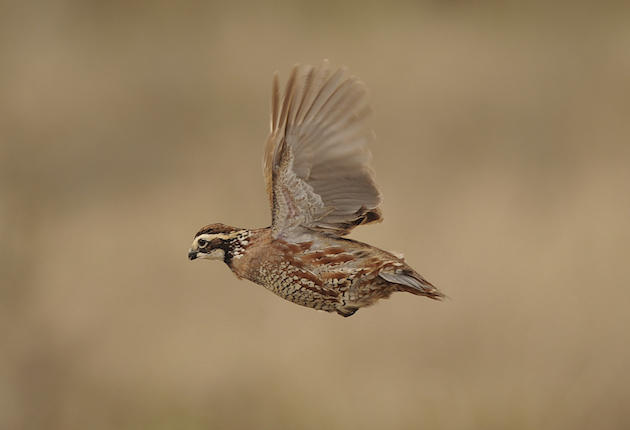It started as so many good things do: with hunting and a dog. Bill Odom’s only impetus for raising quail was to provide a steady stream of birds to train his gun dogs with. With the care of their hunting benefactor, the bobwhites multiplied and multiplied to the point that Odom was having to give them away to friends or freeze them to eat later. From there it was only a matter of time till his recreation became an occupation.
Bill is a graduate of Clemson University with a degree in poultry science. After leaving college, he took a job at Campbell Soup Company as a poultry specialist. It was during his time there in the 1970s that he began training his dogs and producing enough birds to pass along to his friends. The birds were particularly tasty, so the friends told Odom that if he would dress the quail they would happily take them off his hands. He delivered, cleaning and packaging the birds in his backyard. Eventually he decided to cut out the chicken soup and go full-time in the bobwhite business.
Odom began by converting chicken houses to quail houses. Manchester Farms — named for Manchester State Forest, the area he trained his birds near — was the result. The main facility is located in the South Carolina capital of Columbia.
He originally raised bobwhites, but their susceptibility to disease and fragile nature made them unsuitable for farm raising. He settled on pharaoh quail (sometimes called Japanese quail or Coturnix quail), which can lay up to 300 eggs a year and provide a high ratio of feed-to-egg conversion.
Pharaoh quail have a long history of edibility. The legend goes that they somehow made their way from biblical-era Egypt to Japan, where a sick emperor ate nothing but quail for 40 days. He was healed, and commanded his subjects to eat the birds for their health as well.
Rather than stick with the risky bobwhites, Odom selected these healthy and health-restoring birds to build his company around.
But the birds themselves weren’t the only hurdle to jump. Quail was already a delicacy in Europe in the 1980s, but the average American had no desire for the little fowl. Outside of hunters, few even knew how to prepare them. Odom essentially had to do for America what he had done for his friends — prepare the quail himself and ship the ready-to-eat meat to restaurants.
The company steadily grew. Along the way Odom moved from solely mail order to supplying major grocery store chains as well. Today, Manchester Farms’ quail can be found in locations like Harris Teeter, Bi-Lo, Piggly Wiggly, Ingles, and Publix.
To produce enough birds for the world’s plate, Manchester keeps its birds in-house from start to finish.
“We’re completely vertically integrated,” Brittney Miller said. “We own our own hatchery, our own breeder farm. We have our own grow-out farm.”
Miller is Odom’s daughter. She and her brother Steve took over Manchester Farms when Bill and his wife Janet retired in 2008. Brittney purchased Steve’s interest in the company in 2013.
The only thing not owned by Manchester is the feed mill, simply because quail are so much smaller and eat so much less compared to chickens or turkeys that its not feasible to produce their own feed. Their diet consists of corn and soy, mixed with probiotics for … well, you’ve seen the yogurt commercials. In its 40 years in business, Manchester has only used antibiotics once. Other than that, the quail rely on their immune systems just like wild birds — no vets on call, no chemicals in the water, no antibiotics on site.
“Just good old tender love and care,” Brittney said.
The quail are the closest you can get to killing wild birds. They are housed in barns, which allow them plenty of room to fly around while still protecting them from the myriad of predators that quail have to contend with: from hawks in the sky, to cats around, to the creeping snakes that creepeth under the surface. And fire ants. South Carolina has lots of fire ants.
Unlike chicken producers, with broilers and layers on separate farms, Manchester produces both quail and eggs for market. Products include bacon-wrapped quail breasts, quail eggs, European-style semi-boneless quail (only wings and drummettes left), and other quality quail items.
Manchester doesn’t test their birds in a lab for genetic excellence; no crossbreeding is done to create Super Quail. Instead, each bird is hand-selected to ensure the breeding stock is the size and quality desired. It’s that level of TLC that Brittney credits with Manchester’s success.
“Dad and Mother Nature developed them the way they are supposed to be. We just respect it and try to give them the best life throughout their process, as natural as possible.”
Manchester is still family-owned by the same family that started it; still doing things the hunter’s way though the hunter is retired and in the field instead of the office. It’s the sportsman’s philosophy of management that keeps Manchester Farms’s quail flying so much higher than its competitors.
“It’s the same mindset we’re still in: Give them the best environment, the best care, the best feed, and they will procreate and be healthy,” Brittney said. “Here we are 40 years later, and it’s the same mantra.”
For more information about Manchester Farms and to purchase quail for your upcoming holidays feasts, visit manchesterfarms.com today!

